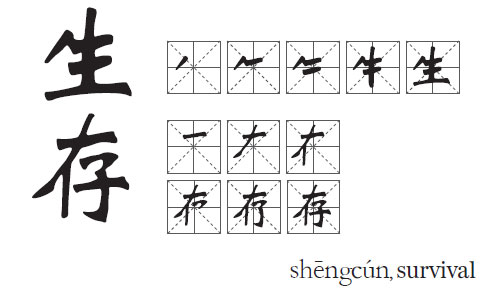China's survivalist revival
Updated: 2015-09-18 07:43
By David Dawson(China Daily Europe)
|
|||||||||||

Those interested in survivalism tend to be young males. Active members who engage in activities or purchase survival gear tend to be in their 20s or 30s, though members of online discussion groups are often adolescents in high school, or university students and people who have just started to work.
"They are energetic and have a lot of time, and are among the next generation of the middle class," Wang says.
From his own observations of those posting in the forum, Wang noticed more subtle markers that crop up among members, a lot of which demonstrate their cautious attitude.
Those with resources tend to believe in the importance of being insured and tend to be concerned about their health and the health of family members. Interestingly, "they tend to avoid high-risk investments", and "make long-term development plans for their families".
In contrast to their cautious side, they also often "engage in outdoor activities and competitive sports, first-aid training, and even extreme sports."
But as with all demographic groups, there are the dilettantes - and worse.
"Many of the adolescent members have a passion for the idea of defending themselves in combat. They often buy and carry around 'cool' gadgets to show off," Wang says, indicating this is more of a harmless fad. However, he also points out that "the younger a survivalist is, or sometimes those from a lower social strata, the more focus they put on violence and anarchy after a serious disaster. They are more likely to confuse 'combat abilities' with 'survival abilities'."
Wang also says he cannot "rule out the idea that some of them might have mental disorders. The older they are, and the higher they are in terms of social class, the more likely they are to consider survival at the micro, macro and strategic level."

Such far-fetched doomsday scenarios have gripped imaginations in the past China, leading to a variety of responses from creative survivalists. In the lead up to the 2012 "Mayan apocalypse", one Hebei farmer, working out of a workshop in Beijing, invested his life savings in creating "apocalypse pods" for sale. They were round balls of steel and fiberglass that, in theory, could protect individual for up to four months, insulated so that even at the North Pole they could survive in the event of a tsunami.
He was not the only person creating disaster pods, with a Zhejiang resident and a man from Xinjiang also building pods and a kind of Noah's Ark, respectively.
The Survival Fanatics group is not without its own bizarre posts. "There are very few people who prepare themselves for nuclear wars, the world's zombie apocalypse, etc. Some of them are playing at survivalism, while others are not understood by society or even our own circle," Wang says.
Wang's own interest in survivalism coalesced out of a number of events in his childhood and young adult life. Guides for militia members were commonplace, so the general survivalist concept was not unfamiliar to Wang. Also, unlike the many young Chinese today who are raised in cities or village communities divorced from nature, Wang not only was raised close to nature, but was also exposed to tales like Robinson Crusoe. He was also a fan of the Chinese children's cartoon the Haier Brothers, a tale of two children who travel around the world exploring nature and seeking solutions to human disasters.
Still, this was hardly enough to make him interested in survivalism. Growing up, however, he experienced a number of mishaps and hardships, ranging from an electric shock and food poisoning to an incident that, he says, "threatened the safety of a number of people".
When a supply-chain scare menaced Wang's area - a surprisingly common occurrence in China, involving garbled news about something like food contamination or a disaster, such as the Fukushima reactor meltdown in Japan in 2011 - he began to "view the world from the perspective of a survivalist".
Though today's middle class may make up the modern survivalist movement due to their improved disposable income, Wang says these kinds of sentiments are hardly new in Chinese history. "In ancient China people raised children to look after them in their old age and often hoarded food for a rainy day. From China's feudal periods to the Republic of China period, wealthy and prestigious families often had traditions such as these and passed them down."
Courtesy of The World of Chinese, www.theworldofchinese.com
The World of Chinese
Today's Top News
Opinion: Opportunity knocks for EU and China over next five years
Yuan rises for 7th day in a row, highest level since August
Reforms spark legal brain drain
EU officials postpone visit to Turkey after attacks in Ankara
Documents of Nanjing Massacre inscribed on Memory of World Register
Xi congratulates Kim on WPK anniversary
CPC expels media exec over UK 'green card'
Chinese students' print-like English handwriting stirs controversy
Hot Topics
Lunar probe , China growth forecasts, Emission rules get tougher, China seen through 'colored lens', International board,
Editor's Picks

|

|

|

|

|

|






